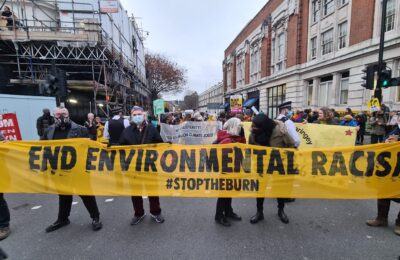From The Guardian

The PM clearly hasn’t grasped the opposition to his climate denial or the extent to which big oil has alienated people here.
Wed 2 Aug 2023
Rishi Sunak revealed little in the way of new policy on energy, economy, or heaven forbid, climate on his visit to Scotland. Indeed, he mostly doubled down on climate denial by regurgitating plans to hand out hundreds of new oil and gas licences in the coming years.
Perhaps that’s not surprising from a government that helped the sector avoid paying billions in windfall tax, while trying to get out of its overseas climate finance commitments. But it’s harder than ever to digest on the back of weeks of temperature records tumbling, killer heatwaves, raging wildfires and flash floods.
The only real development allied to his visit here was the promise of a share of £20bn public funding and somewhat opaque “track 2” status for the Acorn carbon capture project near Peterhead in Aberdeenshire – something the Tories and SNP have long played politics with.
Carbon capture has been hovering in the background for many years but only started to come to the fore as we reach the limits of what tinkering around the edges of business-as-usual can do to bring emissions down. Carbon capture is the preferred climate solution of the fossil fuel industry and its cheerleaders; those who stand to lose from the transformative changes needed to meaningfully tackle the crisis.
But carbon capture has a long history of over-promising and under-delivering – longer, in fact, than the time we have to bring down emissions if we want to secure a livable planet. The case for it is usually made on the grounds of a need to mop up residual emissions from sectors that are hard to reduce, such as cement and steel. This is patently not the plan for North Sea carbon capture and the Acorn project which are being used to justify continued use of oil and gas into the 2050s, despite the scientific consensus that fossil fuels need to go.
What’s not widely understood, however, and what the prime minister did not elaborate on, is that the projected volumes of carbon to be stored in exhausted North Sea wells go far beyond what the UK could feasibly require. The idea, backed by both the UK and Scottish governments despite the history of industry failure, is to turn the North Sea into Europe’s dumping ground for carbon. That’s hardly a vote-winner in either parliament.
Let’s be clear: this is a plan that serves, and indeed subsidises, only the interests of fossil fuel industry bosses and does nothing to secure our energy future or jobs in the region.
If the point of jetting up to Aberdeenshire was to convince voters that handing over public money to companies like Shell to pour down the drain on a speculative techno-fix was a sound plan for the economic future of the region, then the prime minister clearly underestimates the extent to which big oil has undermined its social licence over the past decade – not only through its disregard for the climate crisis and householders struggling to pay the bills, but also in treating the workforce as a disposable asset, to be hired and fired at the whim of an increasingly volatile market.
This is not just about Sunak’s leadership, however: none of the major political parties has a credible plan for tackling the climate crisis, and all are guilty of some degree of magical thinking when it comes to carbon capture. Neither the climate crisis nor the economic crisis will be resolved by subsidising the arsonists’ greenwashing plans.
Those seeking to be elected would do better to look to the ideas being generated through the lens of just transition that put the experience and needs of workers and communities at the heart of plans to decarbonise the economy. Oil and gas workers have already come up with a blueprint for the transition of their industry. It’s called Our Power and it’s backed by over a thousand offshore workers and several trade unions. It calls for clear, accessible pathways out of high-carbon jobs, investment in domestic manufacturing and assembly of renewables, a reorganisation of the tax regime for public good and sharing the benefits of our energy system fairly through public ownership.
We know that the juxtaposition of jobs v climate that Sunak offers is false. With the right planning and investment, there is potential for three green jobs for every one job at risk from a managed phase-out of oil and gas in line with global climate goals. What’s more, we only have to look at the history of the North Sea oil industry itself – which went from first drop drilled to oil exporter in just 12 years – to know that energy transformations of this kind can be done within the short timeframes that the climate crisis now requires. All it needs is the political backbone to do it.



